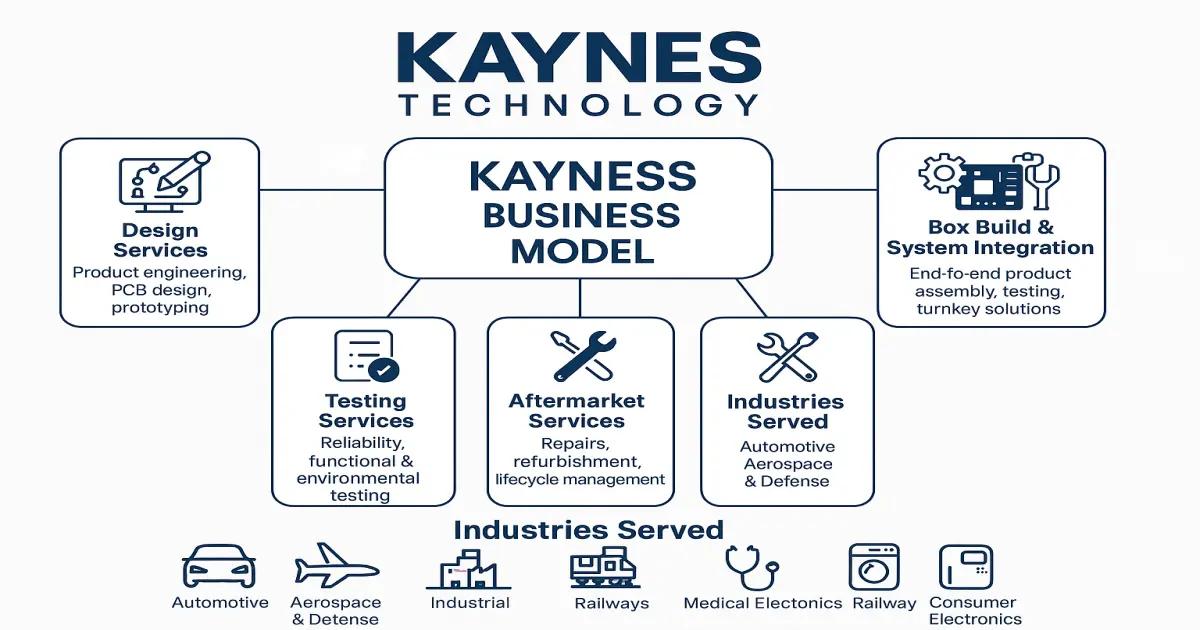The global economy is shaping toward new technologies, and as these technologies arrive, several companies are striving to lead them. In the current scenario, the major factor driving upcoming technologies is considered to be blockchain and AI. These technologies are expected to be supportive of semiconductors, as semiconductors drive this growth and play one of the most crucial roles in making these innovations and ambitions successful. Each country in the world is trying to become self-sufficient and take the lead in this area, and India is also making the same effort.
The semiconductor industry in India is making significant progress toward becoming self-sufficient and leading in technology-driven sectors. Several countries are contributing to this effort in various ways. The Indian government is also taking strong initiatives to bring semiconductor manufacturing to India, along with other associated businesses such as OSAT and others. Among these, there are several companies in India that are making important contributions, and one of them is Kaynes Technology.
The semiconductor industry involves several processes. The first is designing the chips, followed by manufacturing, known as fabs. After that comes packaging, assembling the chips, and testing them properly before delivering them to clients. These are the various stages of the process. In the coming times, AI is expected to play a core role in the future, and in this, semiconductors will play a critical part. Companies like Kaynes Technology are playing an important role in this effort to make India self-sufficient.
Keynes Technology business
There are various ways in which the company does business. One of them is through its OSAT facility, established in recent times. This is receiving significant attention because the company packages, assembles, and tests chips there. The facility is located in Gujarat, where several semiconductor projects have been launched. One of India’s most talked-about projects, the CG Power-Micron semiconductor plant, is also based there. This makes Keynes Technology’s OSAT center very important, as it is expected to generate great business opportunities for the company.
Automotive
- Cluster PCBAs, LED lamp boards, switches, BCU units.
- Electronics for EVs (battery, control modules, BLE modules).
Industrial & EV
- Engine control panels, streetlight controllers, precision strain sensors.
Railways
- Signaling equipment (UM71 receivers, ETCS cubicles, SDTC units).
Medical
- Endoscopy modules, X-ray machines, analyzers, controller units.
Aerospace, Defense & Space
- Sonar, mission-critical electronics, ESAF modules, ATE & LRU cable assemblies.
- Contributions to ISRO missions (Chandrayaan-3, Aditya-L1).
IoT/IT/Consumer
- Barcode scanners, RFID gateways, sensors, HMIs, industrial tablets.
Design & Engineering Services
- Product Design and Engineering → from concept to prototype.
- ODM Services (Original Design Manufacturer) → Kaynes designs & manufactures products that clients can brand and sell.
- Embedded Design, IoT Solutions, Firmware Development for smart/connected devices.
Lifecycle & Value-Added Services
- IoT Solutions: End-to-end IoT hardware + software integration.
- Cable Harness: Custom wire/cable assemblies for automotive, aerospace, EVs, telecom.
- Automated Test Equipment (ATE): In-house systems for fast, reliable quality testing.
- End-of-Life Services: Product redesign, refurbishment, recycling, handling obsolete parts.
ALSO READ : CDSL vs NSDL
Management’s Perspective on Kaynes’ Growth
FY 2024–25 was a defining year for Kaynes, where we advanced meaningfully across four high-value verticals—smart metering, HDI PCBs, OSAT, and AI-enabled railway safety systems. These initiatives represent not just commercial opportunities, but strategic moves towards deeper value chain integration, higher IP ownership, and platform-led differentiation. With this foundation, we strengthened long-term global OEM relationships and invested ₹3,919 Mn in capex to build long-cycle assets that will support our multi-vertical future.
Our smart metering business is aligned with national-scale deployment under the Government of India’s RDSS scheme, positioning Kaynes as a key enabler for the country’s digital utility transformation. The OSAT facility, through Kaynes Semicon, is expected to contribute 25–30% of overall revenue in the coming years, requiring significant investment in FY 2025–26 with contributions beginning thereafter. At the same time, our HDI PCB capabilities and AI-enabled railway safety systems are designed to address India’s critical infrastructure needs while building globally competitive solutions.
Inorganic actions were sharply aligned with capability expansion and international reach. The integration of Sencio in Austria brought differentiated solutions in distributed acoustic sensing for railway safety and monitoring, while the acquisition of Iskraemeco deepened our strength in smart metering and next-generation communication technologies. These steps not only expanded our portfolio but also diversified our geographic presence and solution capabilities.
Looking ahead, we are positioning Kaynes as a next-generation technology manufacturer with deep focus on vertical integration and strategic partnerships. The next 2–3 years will be a period of execution and consolidation, requiring financial discipline, operational resilience, and innovation-led differentiation. By strengthening our R&D, accelerating edge computing capabilities, and creating scalable platforms across verticals, we aim to ensure that Kaynes is not just positioned for India’s opportunity, but for global relevance.

2 thoughts on “Kaynes Technology: Business Model and Growth Story”